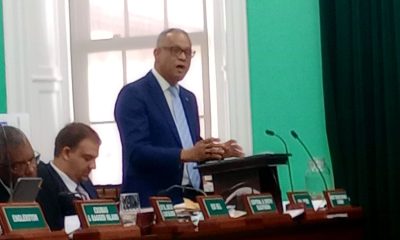International
Plastic Pollution Problem
NASSAU, BAHAMAS – The move to take global action on plastics pollution is gaining momentum. The Bahamas has already made significant strides, but there is still quite a way to go.
-

 National3 days ago
National3 days agoYoung Father Finds Hope By Helping His Community
-

 Court3 days ago
Court3 days ago12-Year-Sentence for Man Convicted of Raping Woman After Leaving Bar
-

 National3 days ago
National3 days agoPM: I Don’t Want A Trickle, I Want Them To Get The Whole Pie
-

 International2 days ago
International2 days ago#MeToo Founder ‘Angry, Sad’ About Weinstein Verdict
-

 National2 days ago
National2 days agoCharlie Bahama Show Returns For Season 10
-

 Sports14 hours ago
Sports14 hours agoNational Family Island Regatta Wraps Up In Exuma
-

 National14 hours ago
National14 hours agoRed Cross Fair Marks 80th Year
-

 National2 days ago
National2 days agoPrime Minister: It’s Simply How They View Things

























